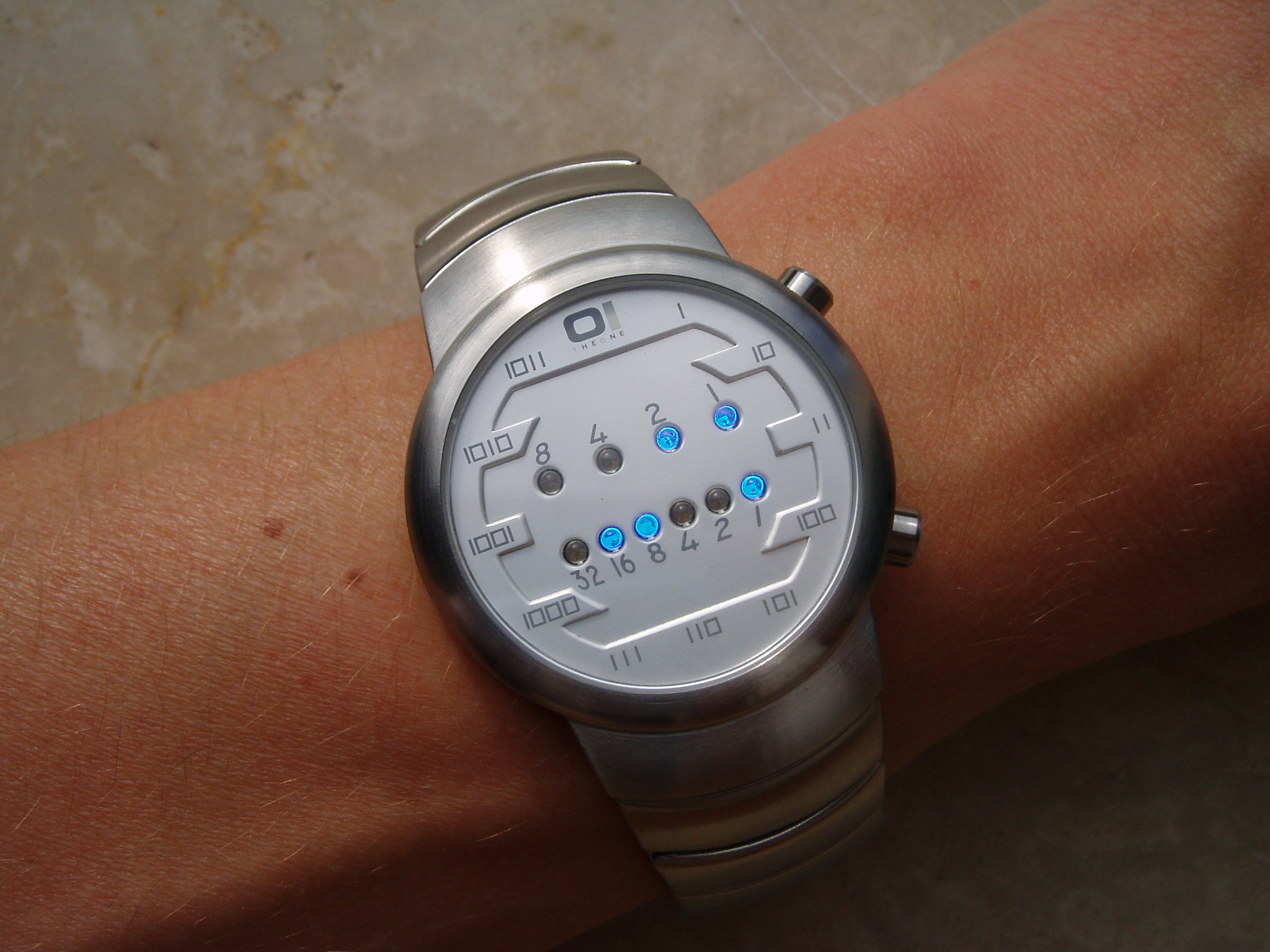401.Binary Watch
Tags: [binary], [recursion], [choose_or_not]
Link: https://leetcode.com/problems/binary-watch/?tab=Description
A binary watch has 4 LEDs on the top which represent thehours(0-11), and the 6 LEDs on the bottom represent theminutes(0-59).
Each LED represents a zero or one, with the least significant bit on the right. For example, the above binary watch reads "3:25".
For example, the above binary watch reads "3:25".
Given a non-negative integer n which represents the number of LEDs that are currently on, return all possible times the watch could represent.
Example:
Input: n = 1
Return: ["1:00", "2:00", "4:00", "8:00", "0:01", "0:02", "0:04", "0:08", "0:16", "0:32"]
Note:
- The order of output does not matter.
- The hour must not contain a leading zero, for example "01:00" is not valid, it should be "1:00".
- The minute must be consist of two digits and may contain a leading zero, for example "10:2" is not valid, it should be "10:02".
Solution: binary, recursion, choose_or_not
class Solution(object):
def readBinaryWatch(self, num):
"""
:type num: int
:rtype: List[str]
"""
if not num:
return ['0:00']
result = []
num_of_top_lights = 0
while num_of_top_lights <= 4 and num_of_top_lights <= num:
result += self.possible_time(num_of_top_lights, num - num_of_top_lights)
num_of_top_lights += 1
return result
def possible_time(self, num_of_top_lights, num_of_bottom_lights):
possible_hours = self.get_all_possible_nums(4, num_of_top_lights)
possible_minutes = self.get_all_possible_nums(6, num_of_bottom_lights)
result = []
for h in possible_hours:
for m in possible_minutes:
if m < 10:
m_s = '0{}'.format(m)
else:
m_s = str(m)
result.append('{}:{}'.format(h, m_s))
return result
def get_all_possible_nums(self, num_of_digits, num_of_ones):
result = []
buff = []
self.get_all_possible_nums_helper(num_of_digits, num_of_ones, result, buff)
return result
def get_all_possible_nums_helper(self, num_of_digits, num_of_ones, result, buff):
# base case
if len(buff) == num_of_digits:
if num_of_ones == 0:
num = self.get_num_by_binary_representation(buff)
if num_of_digits == 4 and num <= 11:
result.append(num)
elif num_of_digits == 6 and num <= 59:
result.append(num)
return
buff.append(0)
self.get_all_possible_nums_helper(num_of_digits, num_of_ones, result, buff)
buff.pop()
buff.append(1)
self.get_all_possible_nums_helper(num_of_digits, num_of_ones - 1, result, buff)
buff.pop()
def get_num_by_binary_representation(self, binary_arr):
if not binary_arr:
return 0
result = 0
counter = 0
for i in xrange(len(binary_arr) - 1, -1, -1):
digit = binary_arr[i]
result += digit * pow(2, counter)
counter += 1
return result
Revelation:
- Subdivide the problem to each small problem.
Note:
- Time complexity = O(1), explanation: T = O(4 * ((choose k from 4) + (choose n - k from 6) + (choose k from 4) * (choose n - k from 6))), k <= 4, because O(choose k from 4) = 4! / k! * (4 - k)! = O(1), O(choose n - k from 6) = 6! / (n - k)! * (6 - n + k)! = O(1).
- Do not forget to check the generated hour <= 11 and generated minute <= 59, based on the requirement.